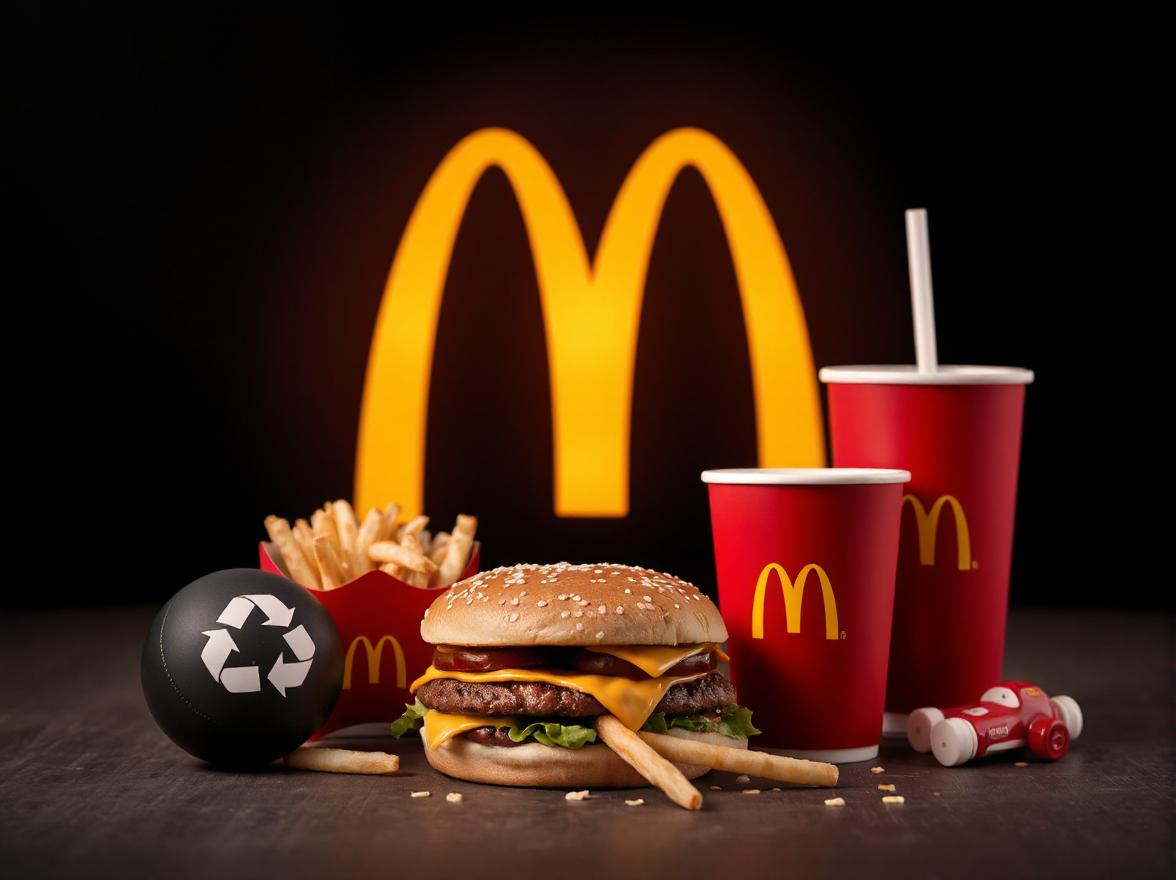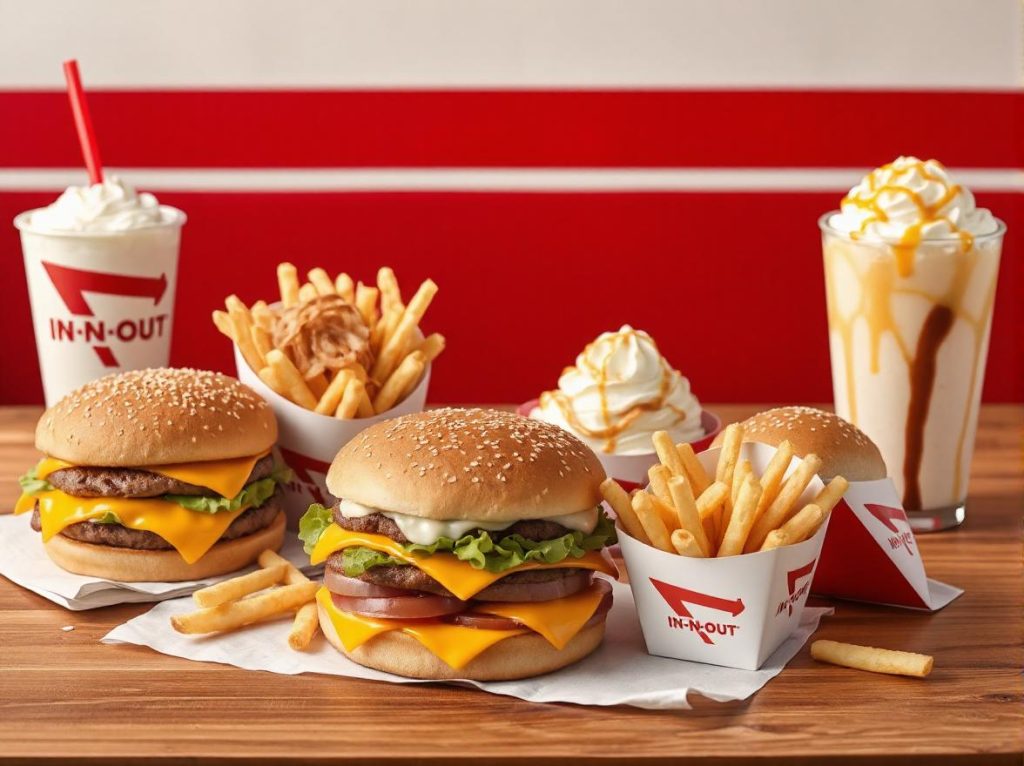Worst Things About McDonald’s: What You Need to Know
When it comes to fast food, McDonald’s is undeniably a global leader. From its iconic Golden Arches to its wide-reaching menu, it has become a staple in many people’s daily lives. However, despite its success and popularity, McDonald’s is not without its flaws. In this article, we will take a deep dive into some of the worst things about McDonald’s that consumers and critics alike have pointed out over the years. These issues span from health concerns to ethical dilemmas, and even to environmental impacts, giving you a well-rounded perspective on the fast food giant.
1. Health Concerns: The Dark Side of Convenience
One of the most frequently discussed issues about McDonald’s is the potential health risks associated with eating its food regularly. Despite the brand’s efforts to offer healthier options in recent years, McDonald’s is still primarily known for its calorie-dense, highly processed meals that are high in fat, sugar, and salt. Here are some reasons why health experts and consumers are concerned about the food served at McDonald’s:
High Calorie Content
Many of McDonald’s most popular menu items, such as the Big Mac, Quarter Pounder, and McFlurry, are packed with calories. For instance, a Big Mac contains over 550 calories, and that’s before you add any sides or drinks. The fries, a staple item on the menu, are also high in calories. A medium order of McDonald’s fries contains around 380 calories, which can quickly add up if you’re having a full meal.
Excessive Amounts of Sugar and Salt
McDonald’s menu items tend to be rich in sugar and salt, both of which are linked to a variety of health issues. High sodium intake can lead to high blood pressure and cardiovascular problems, while an excess of sugar contributes to obesity, diabetes, and other metabolic disorders. For example, a regular McDonald’s Coke has about 39 grams of sugar—almost 10 teaspoons—which is far above the recommended daily limit.
Lack of Nutritional Balance
Though McDonald’s offers salads, fruit, and other seemingly healthier options, the vast majority of its menu is heavily skewed toward unhealthy, processed foods. Even the healthier options still come with plenty of added dressings, toppings, and sauces that diminish their nutritional value. This lack of balance in nutrients is a significant factor contributing to the restaurant’s poor reputation regarding health.
2. Poor Ingredient Quality
The quality of the ingredients used in McDonald’s food is another area where the fast food chain comes under fire. Over the years, several critics and health-conscious individuals have raised concerns about the sourcing and quality of McDonald’s ingredients.
Meat Sourcing and Processing
McDonald’s has faced significant criticism for its meat sourcing practices. Reports have revealed that the company has used meat from factory farms that prioritize speed and cost over the welfare of animals. This results in practices that some argue are cruel and unsustainable. The company has made efforts to improve sourcing through partnerships with animal welfare organizations, but critics still contend that factory-farmed meat is not the healthiest or most ethical option available.
Use of Artificial Additives and Preservatives
Another issue many consumers raise is the use of artificial additives and preservatives in McDonald’s food. From artificial coloring to flavor enhancers, McDonald’s has long been accused of using ingredients that are far from natural. For example, McDonald’s fries are known to contain a variety of ingredients like dimethylpolysiloxane, an anti-foaming agent, which some health-conscious individuals prefer to avoid. Even though McDonald’s has made strides toward transparency, many consumers still find these additives concerning.
3. Environmental Impact: The Cost to Our Planet
While McDonald’s has made headlines for its efforts toward sustainability in recent years, such as eliminating plastic straws and using more eco-friendly packaging, the environmental toll of the company’s operations remains a major issue.
Packaging Waste
One of the biggest environmental concerns is McDonald’s packaging waste. Despite the company’s push for more sustainable packaging, a significant portion of McDonald’s packaging is still made from plastic, which contributes to the growing issue of plastic pollution. The fast food industry, in general, has long been criticized for its single-use packaging, and McDonald’s is no exception. While McDonald’s has vowed to reduce packaging waste and has introduced some positive changes, critics argue that more needs to be done.
Carbon Footprint
McDonald’s extensive global supply chain, which includes shipping ingredients across the world and maintaining a vast network of restaurants, results in a massive carbon footprint. The company’s impact on the environment is significant, especially considering the high demand for beef, which is a resource-intensive product. In fact, beef production is one of the leading contributors to global deforestation and greenhouse gas emissions. While McDonald’s has pledged to reduce its carbon footprint, the company’s large scale makes it challenging to implement truly sustainable practices at every level of production.
Resource-Intensive Supply Chains
The meat and dairy industries, which McDonald’s relies on heavily, are among the most resource-intensive in terms of water, land, and energy consumption. The fast food chain has been criticized for contributing to the depletion of natural resources through its sourcing and supply chain practices.
4. Labor Issues: Worker Rights and Pay
McDonald’s has long been criticized for its treatment of employees. While the company boasts about being one of the world’s largest employers, many former and current employees have reported poor working conditions, low wages, and a lack of benefits.
Low Wages and Unfair Pay
Despite the company’s immense profits, McDonald’s employees in many regions are paid minimum wage, often below what is necessary for a decent living. Workers have regularly protested for higher wages, with campaigns like “Fight for $15” pushing for a $15 hourly wage. The issue of low pay has garnered significant attention, particularly as McDonald’s has been reluctant to raise wages on a large scale, even though many of its competitors have made moves toward better compensation.
Poor Working Conditions
In addition to low pay, workers have reported a variety of poor working conditions, from long hours and understaffing to inadequate breaks and difficult management. In some instances, employees have filed complaints about sexual harassment and unsafe working conditions in stores. McDonald’s has faced lawsuits and public backlash over these issues, prompting the company to make some changes, but critics argue that the fast food giant could do much more to protect its workers.
5. Unethical Marketing Practices
Another aspect that tarnishes McDonald’s reputation is its marketing practices, especially when targeting children. McDonald’s has been accused of using manipulative tactics to lure young audiences into developing unhealthy eating habits.
Targeting Children with Happy Meals
One of McDonald’s most controversial marketing strategies involves the Happy Meal, which is marketed directly to children. The meal often includes a toy, which is designed to make it more appealing to younger consumers. Critics argue that this practice encourages kids to make unhealthy food choices and creates a lifelong association between fast food and pleasure. Furthermore, the advertising of high-calorie, low-nutrient foods to children has been linked to rising rates of childhood obesity.
Aggressive Advertising Tactics
McDonald’s is also known for its aggressive advertising strategies. The company spends billions on marketing, making it one of the largest advertisers globally. Its ads are highly effective, with catchy jingles and promotions that encourage people to visit frequently. However, this persistent advertising can be seen as a way of normalizing unhealthy eating habits and contributing to the global health crisis.
Conclusion: Is McDonald’s Worth It?
While McDonald’s remains one of the world’s most popular and iconic fast food chains, it is not without its problems. From health concerns and poor ingredient quality to environmental issues, labor practices, and unethical marketing, McDonald’s has faced considerable criticism over the years. That said, the company has taken steps to address some of these issues, such as improving sourcing practices, offering healthier menu items, and making efforts toward sustainability.
Whether or not McDonald’s is worth your visit ultimately depends on your priorities. If you value convenience and affordability, it may still be an attractive option. However, if health, environmental sustainability, and ethical practices are more important to you, it may be worth considering other alternatives.
By understanding the worst things about McDonald’s, you can make a more informed decision about where you choose to eat. While the company is still beloved by millions around the world, these issues serve as an important reminder of the complexities involved in the fast food industry.





